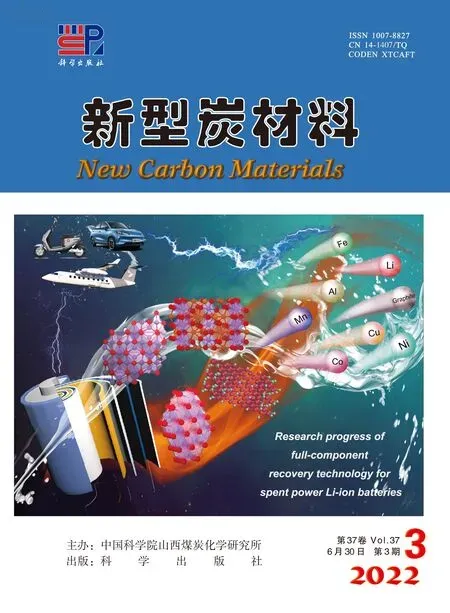A review of polymer-derived carbon molecular sieve membranes for gas separation
2022-10-26LIHaojieLIUYaodong
LI Hao-jie, LIU Yao-dong
(1. Key laboratory of Carbon Materials, Institute of Coal Chemistry, Chinese Academy of Sciences, Taiyuan 030001, China;
2. University of Chinese Academy of Sciences, Beijing 100049, China;
3. Center of Materials Science and Optoelectronics Engineering, University of Chinese Academy of Sciences, Beijing 100049, China)
Abstract: Membrane technology for gas separation and purification has unique economic and environmental advantages over conventional purification processes. Carbon molecular sieve membranes (CMSMs) have a higher gas permeability, selectivity, chemical resistance, and better thermal stability than polymer membranes, and have therefore received more attention. CMSMs are commonly fabricated by the pyrolysis of polymer precursors such as polyimides, resins, cellulose and polyetherimide. The reported fabrication process and gas separation performance of CMSMs made from various precursors are summarized and discussed. Both the chemical and physical structures of the precursor membranes affect the carbon structures and gas separation performances of the resulting CMSMs. Overall, the gas separation performance of CMSMs has been significantly improved in the last 20 years, and
